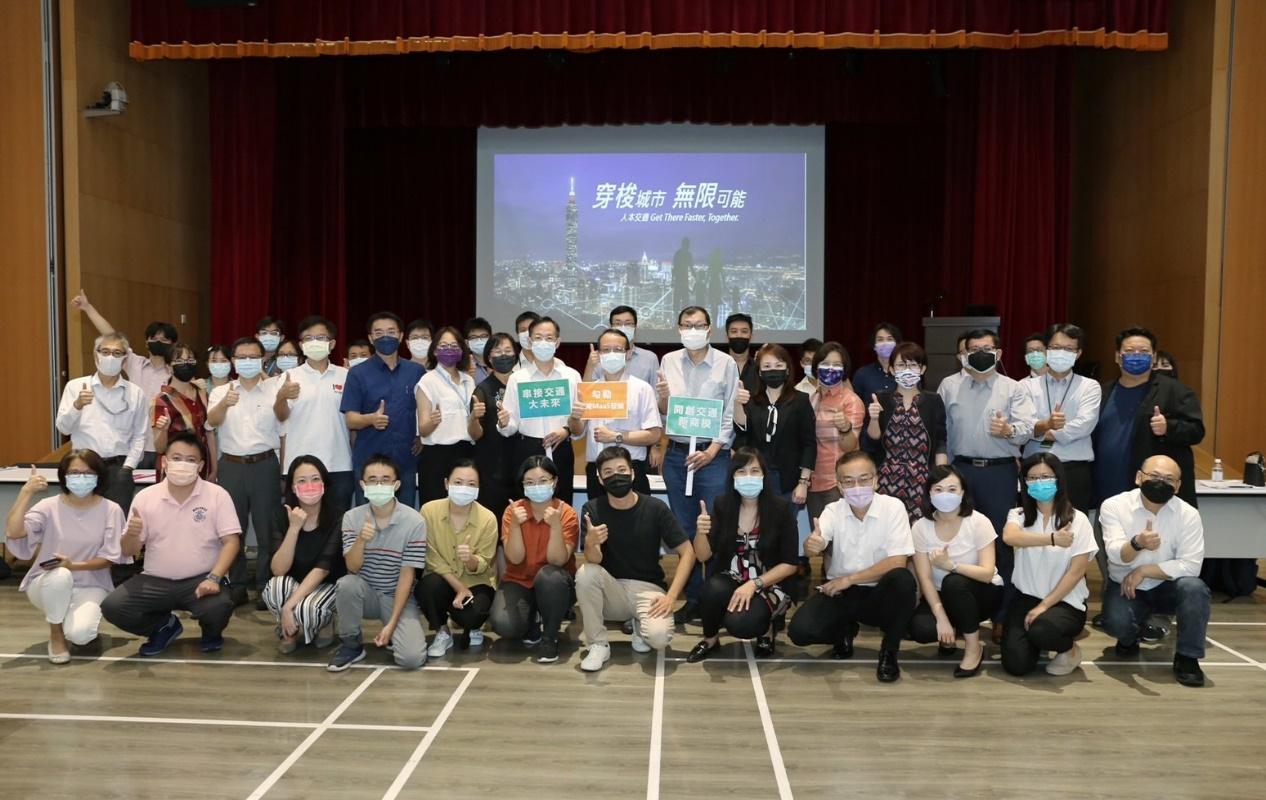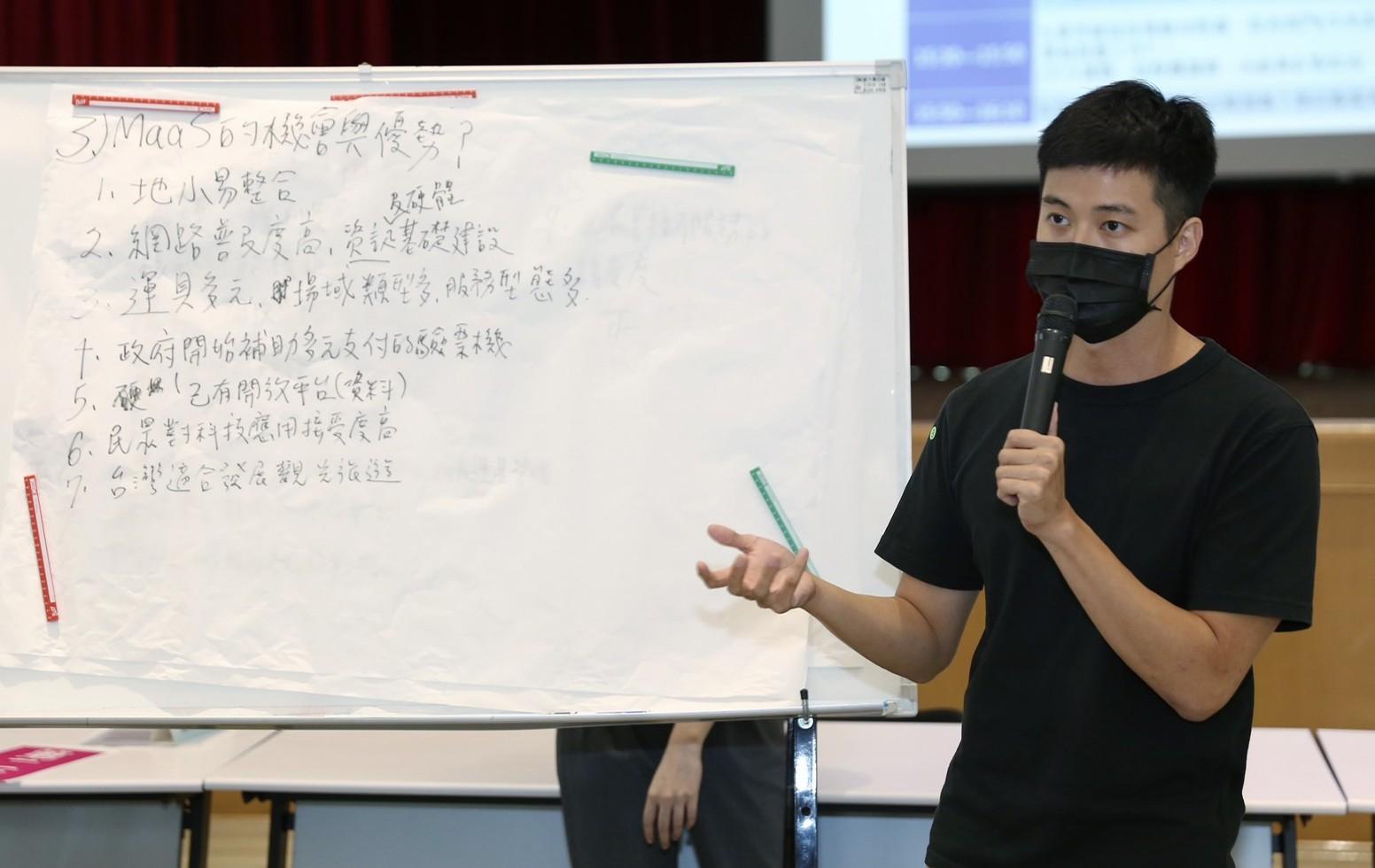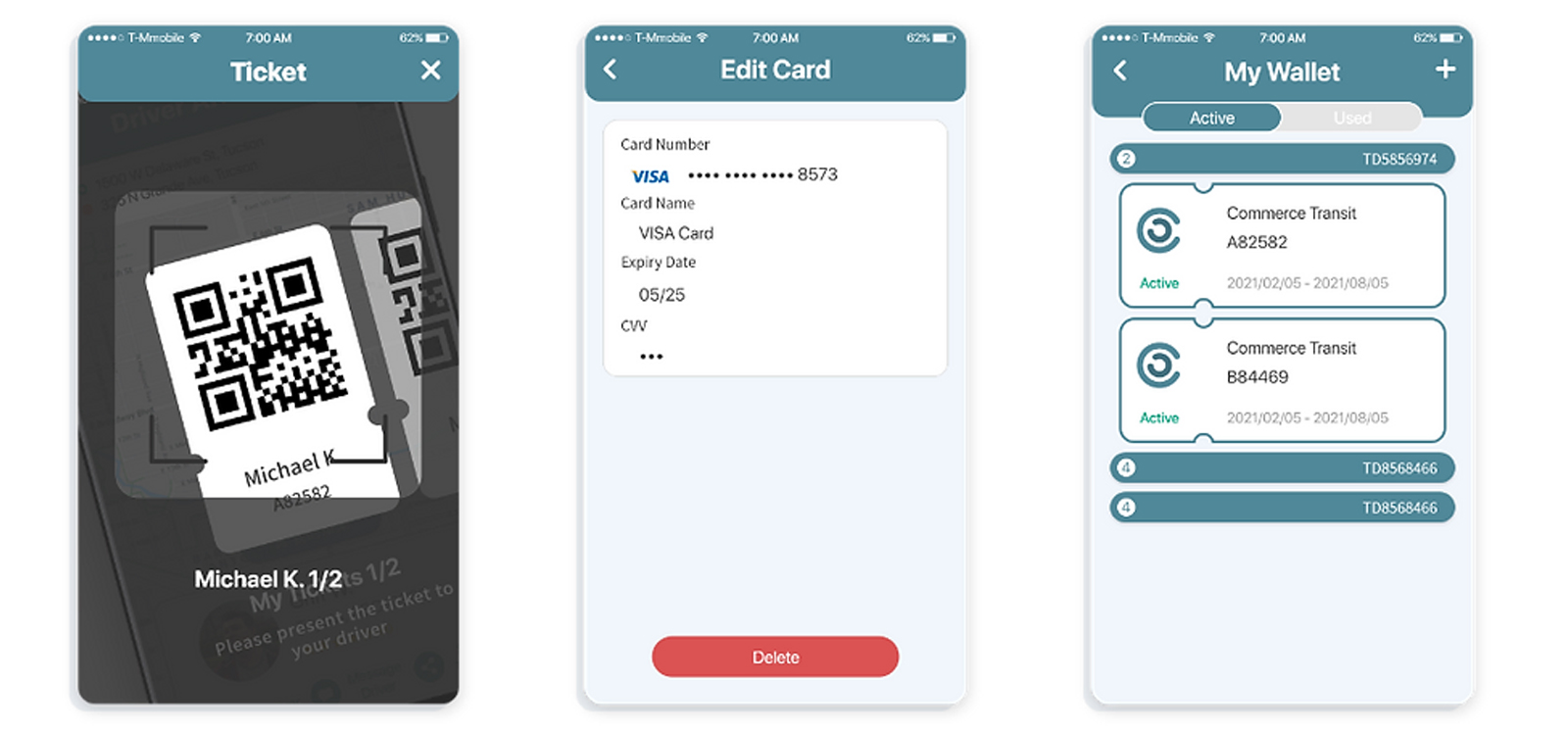How could Mobility-as-a-Service (MaaS) work in Taiwan?

Source:Shutterstock
During the pandemic, the number of public transportation has reduced 70-80% in Taiwan. The government plans to use MaaS platform to help people restore their trust and confidence in public and shared ride services.
Views
How could Mobility-as-a-Service (MaaS) work in Taiwan?
By Mu-Han Wangweb only
COVID-19 has fundamentally changed how urban dwellers commute and move around the city. Public transit suffered the most devastating impact among all transportation modes due to deep concerns over health risks. At the onset of the pandemic, most transit operators worldwide experienced up to a 90% ridership reduction. In Taiwan, most transit operators suffered a 70-80% ridership reduction during the pandemic’s peak. Today, most of Taiwan’s public transit systems have only recovered up to 80% of their pre-pandemic ridership.
The domino effect of plummeting public transit ridership is an increase in the number of passenger cars traveling along our already- congested roadways. More and more people have shifted their mode choice to private vehicles. Commute times in major cities across Taiwan have nearly doubled, causing more crashes and safety concerns and raising commuter anxiety due to unreliable travel. Roadway congestion is also partially attributed to much-increased food and grocery deliveries that have gained popularity over the last two years.
So why is the professional transportation community looking toward Mobility-as-a-Service (MaaS) as a viable solution for coping with shifting travel behaviors and the resulting transportation system management challenges?
The answer lies in a MaaS platform’s ability to utilize unique services in assisting the traveling public to recover their trust and confidence in public and shared ride services.
However, during the process of transforming the MaaS concept into actionable strategies, many questions arise, questions best answered when great minds brainstorm together.
To this extent, MOTC supported a “Shaping up MaaS for Taiwan” workshop organized by Metropia Inc in Taipei on September 23, 2021. More than 30 professionals from various disciplines attended the workshop, including players and stakeholders in MaaS ecosystems, technology developers, payment processors, data providers, platform operators, service providers, academics, and government officials.
 (Source: Mu-Han Wang)
(Source: Mu-Han Wang)
After productive half-day discussions, the attendees reached a consensus on several core user needs and system capabilities, which are briefly summarized below:
- Users need a powerful door-to-door intermodal trip planning capability supporting various personal planning needs related to trip purposes, schedule (departure or arrival), and physical needs (transfer time window).
- The MaaS platform should be built on a flexible and versatile framework to enable various payment integrations supporting various business models, including different bundled services and pricing schemes.
- The MaaS platform should facilitate various innovative shared/pooled services in addition to traditional public transit. These shared/pooled services could entail various forms and shapes offered by livery service companies or simply commuters sharing rides themselves.
- When supporting leisure and tourism trip purposes, the MaaS platform should cross-source information (e.g., hotel, attractions, restaurants, etc.) from travel aggregators, allowing users to quickly cross-search transportation and tourism information.
With the above capabilities, what are the core value propositions sustaining the long-term growth of MaaS in Taiwan? Workshop attendees answered this question via a motto: “Frictionless travel, balanced life.” MaaS can gradually and structurally shift how people in Taiwan think and plan for various travel purposes with a more environmentally-sustainable mindset and actions. Limited resources are better utilized, and the external costs of travel are further reduced. The contributors, stakeholders, and users of the MaaS value chain and the entire society will all benefit from MaaS developments and market adoption.
The attendees also conducted a SWOT (Strengths, Weaknesses, Opportunities, and Threats) analysis for MaaS development in Taiwan. The key takeaways of that exercise are:
Strengths and Opportunities – Taiwan has a dense population, extensive and diverse existing transportation services, complete and high-quality transportation open data, robust and comprehensive cellular and wifi networks, great Information and Communications Technology (ICT) technical advancements, and high acceptance of new tech and products. All of these characteristics make Taiwan a fertile ground for growing MaaS.
 (Source: Mu-Han Wang)
(Source: Mu-Han Wang)
Weaknesses and threats – MaaS in Taiwan is hindered by vaguely defined value chains and yet-to-be-proven business models, unclear service and money flow models between MaaS platform operators and transportation service providers (TSPs), varying degrees of ICT readiness for different TSPs, difficulty in ticketing system integration, privacy protection, information, data security challenges, and prevalent reliance in private vehicles for certain purposes. All of these challenges remain to be addressed and resolved by the MaaS community.
 (Source: Metropia's website)
(Source: Metropia's website)
Among all the above challenges, the workshop attendees concluded that the top priority is to narrow the ICT gaps among TSPs and assist traditional TSPs in improving their drivers, fleet, tickets, payment, and operations with proper software and improved workflow adjustments.
Another high priority focus is to establish and demonstrate win-win collaborative business models so that the existing competing TSPs could realize the improved customer value and financial benefit of collaboration on the MaaS platform. Ultimately, a more concerted effort is needed to create the MaaS industry and ecosystem in Taiwan.
With this in mind, the workshop attendees recognized the urgent need to establish the Taiwan MaaS Alliance (TMA). TMA will aim to facilitate progress in the following areas: (1) more peer exchanges in knowledge sharing and capacity building with domestic and international partners, (2) establishing national standards for core functionalities and APIs, (3) assisting alliance members in creating Proof-of-Concept (POC)/Proof-of-Service (POS)/Proof-of-Business(POB) collaboration and experiment opportunities to test and validate various MaaS business model concepts, and (4) identifying possible regulatory barriers deterring the development and growth of MaaS and advocating for proper legislature modifications in a timely manner. Leadership from the Taiwan Telematics
Industry Association also reiterated their commitment to support and collaborate with TMA.
 (Source: Metropia's website)
(Source: Metropia's website)
Reacting to the workshop attendees’ summary and reports, the Director of Science & Technology Advisors Office, MOTC, Dr. Wang, Mu-Han, stressed that the challenges arising from COVID-19 had accelerated dialogues and collaborations among multiple disciplines and industry sectors such as intelligent transportation systems (ITS), emerging mobility services, and tourism industries.
To germinate the growth of the MaaS industry, MOTC has invested in building the foundational infostructure for MaaS, creating critical capabilities such as an intermodal trip planner, inter-city ticketing integration, shared and pooled ride-matching, transportation service provider (TSP) integration by working with technology partners like Metropia Inc. These capabilities are the building blocks to accelerate the testing and experimenting of various MaaS concepts and business models in the coming years. MOTC will fully support the establishment of the Taiwan MaaS Alliance and work with TMA to build and grow the MaaS ecosystem in Taiwan.
(This piece reflects the author's opinion, and does not represent the opinion of CommonWealth Magazine.)
About the author:

Mu-Han Wang is Director General of the Department of Science and Technology Advisors under Taiwan’s Ministry of Transportation and Communications. He has a Ph.D. in Transportation Engineering from Purdue University.
Have you read?
♦ Gogoro CEO over SPAC deal: “We are ready to go big”
♦ Exclusive: Foxconn CEO Young Liu on his EV ambition
♦ How Vehicle-to-Grid (V2G) could accelerate Taiwan’s decarbonization
Uploaded by Penny Chiang






